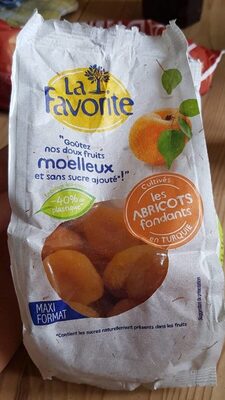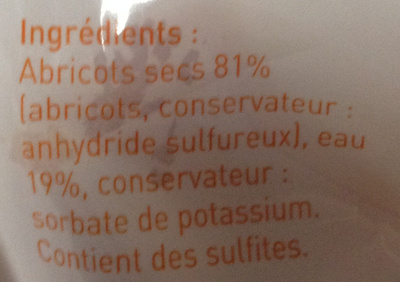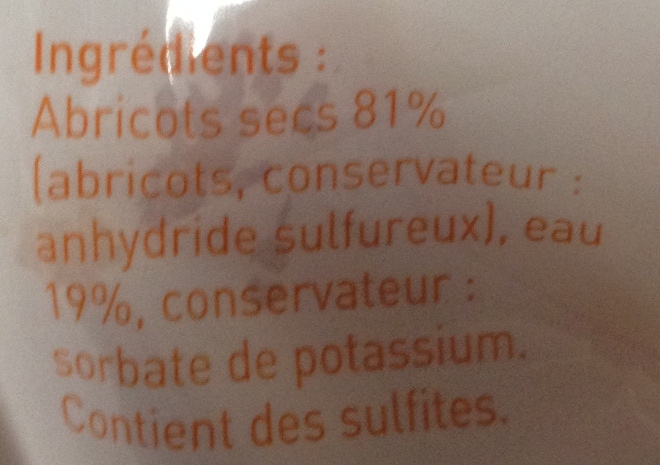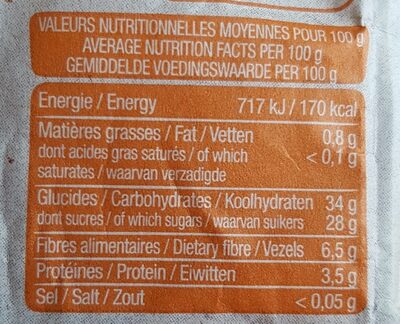Abricots fondants - La Favorite - 500 g
This product page is not complete. You can help to complete it by editing it and adding more data from the photos we have, or by taking more photos using the app for Android or iPhone/iPad. Thank you!
×
Barcode: 3068230004097 (EAN / EAN-13)
Common name: Abricots secs réhydratés à 45% d'humidité maximum
Quantity: 500 g
Packaging: Plastic, fr:Sachet-plastique
Brands: La Favorite
Categories: Plant-based foods and beverages, Plant-based foods, Fruits and vegetables based foods, Fruits based foods, Dried products, Dried plant-based foods, Dried fruits, Dried apricots
Labels, certifications, awards: Low or no sugar, No added sugar
Countries where sold: France
Matching with your preferences
Environment
Carbon footprint
Packaging
Transportation
Report a problem
Data sources
Product added on by jeanbono
Last edit of product page on by roboto-app.
Product page also edited by croco42, kiliweb, openfoodfacts-contributors, packbot, quechoisir, rdg, segundo, yuka.YmYwdkZQcFpqZUV3dTlnRStBbmUrWU4xMmJxTUEySzNPY3dMSVE9PQ, yuka.sY2b0xO6T85zoF3NwEKvlh0XCIvyjTzZDULWu2iumtmcdaLMfsxfxLbYOKs.










